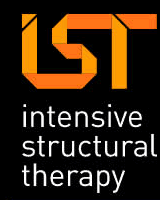Eating Disorders: Tips on Ending Treatment
Intensive Structural Family Therapy is an effective tool for transforming systemic issues of eating disorder sufferers. A major question for all successful treatment is how long will the positive changes be maintained. Will there be regression?
An analysis of cases followed after, in some cases, 20 years after treatment, found the following characteristic at the end of therapy to increase the probability that the changes will be stable:
Based on the data of my qualitative follow-up survey, I am advocating a different position of the therapist from what is customary. Treatment characteristically ends when the problem is resolved and the client and family are satisfied. In this alternative perspective the therapist sees his or her jurisdiction as continuing until the family changes are supported by the broader social system.
While this is a new position for clinicians it is by no means not logical. The broader the support for a system be it social movement or ship that is built so that every system has an identical duplicate in case of failure only increases the odds of stability. So it is with family systems that are often buffed by development and social changes that the broader their supports, the more stable they will remain in the face of these pressures.
I believe that this is an important perspective. There is considerable follow-up literature that supports the effectiveness of family therapy, especially with adolescent anorectics. This finding specially pin points what the clinician should do to increase the odds of long term success. And what families and sufferers should expect from their treatment!



[…] diet plan that anorexia nervosa diagnostic criteria creates considerations for prepared food items or even dining establishments. You will need a diet plan that is certainly accommodating in addition to being you […]
itstitle
excerptsa
order enclomiphene price canada
how to order enclomiphene pill
prix de kamagra vs
acheter kamagra livraison le lendemain
cheap androxal generic canadian
buying androxal generic pricing
how to buy flexeril cyclobenzaprine no prescription usa
online order flexeril cyclobenzaprine purchase singapore
purchase dutasteride generic from india
cheapest buy dutasteride australia online generic
Buy gabapentin on line without a perscription
order gabapentin uk how to get
buy itraconazole uk buy online
how to buy itraconazole purchase in the uk
buying fildena generic in us
purchase fildena price in canada
staxyn next day delivery
buying staxyn generic india
how to order avodart buy in australia
where can you get avodart without a prescription
purchase rifaximin canada suppliers
usa phizer brand hame rifaximin from phizer
how to buy xifaxan purchase toronto
buy xifaxan cost at costco
cod kamagra p?es noc sobota bez p?edpisu
nejnižší cena generické kamagra